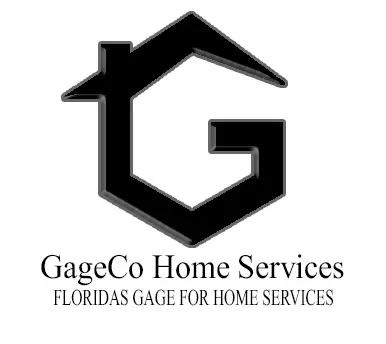If you’re searching for Florida property management license requirements, you’ve come to the right place.
Here’s a quick answer:
- No specific property management license: There is no distinct license for property managers in Florida.
- Real estate license required: If performing leasing or renting services for a fee, a real estate license is essential.
- Community Association Manager License: For managing large associations, a CAM license is necessary.
Property management in Florida is crucial for ensuring the smooth running and upkeep of rental properties. It involves everything from tenant screening to maintenance and rent collection. However, understanding the licensing requirements is vital for legal compliance and professional credibility.
Though there’s no separate “property management license,” certain activities mandate a real estate license. If you’re involved in renting, leasing, or collecting rent for someone else and receiving a commission, you must be licensed by the Florida Real Estate Commission. Additionally, managing large community associations requires a Community Association Manager (CAM) license.
These legal stipulations aren’t just problems—they ensure that you are well-equipped to offer top-notch services, driving better returns on investment and tenant satisfaction.

Understanding Property Management in Florida
Property management in Florida is a varied and essential profession. It ensures the smooth operation and profitability of rental properties. Understanding the roles and responsibilities of property managers and Community Association Managers (CAMs) is crucial for anyone interested in this field.
Roles and Responsibilities
Property Manager: A property manager oversees individual rental properties. Their tasks include:
- Tenant screening: Finding and vetting tenants to ensure reliable occupancy.
- Maintenance: Keeping the property in good condition through regular upkeep and repairs.
- Rent collection: Ensuring timely payment of rent and managing financial records.
- Tenant relations: Addressing tenant issues and ensuring a positive living experience.
Community Association Manager (CAM): A CAM manages community associations like condominiums, homeowners associations (HOAs), or cooperatives. Their responsibilities are broader and include:
- Enforcing community rules: Ensuring residents adhere to HOA guidelines.
- Managing common areas: Overseeing shared spaces like pools, gyms, and clubhouses.
- Handling finances: Managing the association’s budget, collecting dues, and preparing financial reports.
- Coordinating with the board: Working closely with the association’s board of directors to implement policies and decisions.
Key Differences
While both roles involve managing real estate, their focus areas differ significantly.
- Property Managers: Focus on the day-to-day operations of specific rental properties. They deal directly with tenants and property maintenance.
- CAMs: Handle the broader management of community living spaces. They focus on the overall well-being of the community and its common areas.
Licensing Requirements
In Florida, the licensing requirements for these roles are distinct:
- Property Managers: Must hold a valid real estate license if they are involved in renting or leasing properties for a fee. This license ensures they are qualified to perform real estate activities.
- CAMs: Require a CAM license if managing a community association of more than 10 units or with an annual budget over $100,000. This license certifies their ability to manage community associations effectively.
By understanding the roles and responsibilities of property managers and CAMs, you can better steer the requirements and opportunities in Florida’s property management landscape.
Florida Property Management License Requirements
In Florida, managing properties requires specific licenses depending on the activities you perform. Here’s a breakdown of the requirements for obtaining a real estate license and a Community Association Manager (CAM) license.
Real Estate License Requirements
To manage rental properties in Florida and perform activities like leasing and renting for a commission, you need a real estate license. Here’s what you need to know:
Age and Education
- Age: You must be at least 18 years old.
- Education: You need to have a high school diploma or an equivalent qualification.
Pre-Licensing Education
- 63-Hour Course: You must complete a 63-hour pre-licensing course approved by the Florida Real Estate Commission (FREC). This course covers essential real estate principles and laws.
Application
- Form and Fees: Submit an application to the FREC and pay the required fee.
Background Check and Fingerprints
- Background Check: Undergo a background check and submit your fingerprints. This ensures you meet the ethical standards required for the profession.
State Exam
- Exam: Pass the Florida Real Estate Sales Associate exam. This exam tests your knowledge of real estate laws and practices.
Post-Licensing Education
- 45-Hour Course: Before your first license renewal, you must complete a 45-hour post-licensing course. This course further prepares you for your career.
Continuing Education
- 14 Hours Every Two Years: To maintain your license, complete 14 hours of continuing education every two years. This keeps you updated on the latest real estate laws and practices.
Community Association Manager (CAM) License Requirements
If you plan to manage community associations like condominiums or HOAs, you need a CAM license. Here are the requirements:
Age and Education
- Age: You must be at least 18 years old.
- Education: While a high school diploma is preferred, it is not always required.
Pre-Licensing Education
- 16-Hour Course: Complete a 16-hour state-approved CAM pre-licensing course. This course covers the management of community associations.
Application
- Form and Fees: Submit an application to the Florida Department of Business and Professional Regulation (DBPR) and pay the required fee.
Background Check and Fingerprints
- Background Check: Undergo a background check and submit your fingerprints to ensure you meet the ethical standards.
State Exam
- Exam: Pass the Florida CAM exam, which tests your knowledge of community association management.
Continuing Education
- 15 Hours Every Two Years: To maintain your CAM license, complete 15 hours of continuing education every two years. This ensures you stay current with community management practices and laws.
Understanding these requirements will help you steer the process of obtaining your florida property management license. Next, we’ll walk you through the specific steps to get licensed in Florida.
Steps to Obtain a Florida Property Management License
To become a licensed property manager in Florida, you’ll need to follow a series of steps. Let’s break down the process into manageable parts.
Pre-Licensing Education
The first step is to complete a 63-hour pre-licensing course approved by the Florida Real Estate Commission (FREC). This course covers essential real estate principles and laws, preparing you for the state exam.
- Cost: Expect to pay between $100 to $500, depending on the provider.
- Format: Courses can be taken online or in person.
- Exam: At the end of the course, you’ll need to pass an exam with a score of 70% or higher.
If you have a four-year degree in real estate, you may be exempt from this course. You’ll need to submit an original certified transcript along with a cover letter.
Application Process
Once you complete the pre-licensing course, the next step is to submit your application to the FREC.
- Form and Fees: The application fee ranges from $89 to $100 and includes the cost of electronic fingerprinting.
- Fingerprinting: You must undergo a background check and submit your fingerprints.
- Approval Letter: After submitting your application, wait for the approval letter from the Florida Department of Business & Professional Regulation (DBPR). This process can take 10-30 days.
State Exam
After receiving your approval letter, you can schedule your state exam with Pearson Vue.
- Exam Fee: The fee for the exam is $36.75.
- Format: The exam consists of 100 multiple-choice questions and takes three-and-a-half hours to complete.
- Passing Score: You need to score 75% or higher to pass.
- Results: Results are typically available 7 to 10 days after taking the exam.
License Activation
Once you pass the state exam, you must activate your real estate broker license.
- Post-Licensing Education: Before your first license renewal, you must complete a 45-hour post-licensing course approved by FREC.
- Continuing Education: To maintain your license, you need to complete 14 hours of continuing education every two years.
These steps will guide you through obtaining your florida property management license. Now, let’s explore what tasks you can perform as an unlicensed property manager in Florida.
What Can an Unlicensed Property Manager Do in Florida?
In Florida, while certain property management tasks require a real estate license, there are still many activities that an unlicensed property manager can perform. These tasks typically fall under administrative and support roles, ensuring the smooth operation of rental properties without engaging in activities that legally require a license.
Administrative Duties
Unlicensed property managers can handle a variety of administrative tasks. This includes managing paperwork, maintaining tenant records, and organizing files. These tasks are essential for the efficient operation of any property management business.
- Paperwork Management: Keeping track of lease agreements, tenant applications, and maintenance requests.
- Record Keeping: Updating tenant information and ensuring all documents are properly filed.
Scheduling Maintenance
Another critical area where unlicensed property managers can contribute is in scheduling maintenance and repairs. Ensuring that properties are well-maintained is vital for tenant satisfaction and property value.
- Coordination: Scheduling routine maintenance and emergency repairs with contractors and service providers.
- Follow-Up: Ensuring that maintenance tasks are completed satisfactorily and on time.
Tenant Relations
Maintaining good relationships with tenants is crucial for any property management operation. Unlicensed property managers can handle many aspects of tenant relations, helping to foster a positive living environment.
- Communication: Acting as a point of contact for tenant inquiries and concerns.
- Conflict Resolution: Addressing minor tenant disputes and ensuring that issues are resolved amicably.
Collecting Rents
While collecting rents is generally considered a real estate activity, unlicensed individuals can still assist in this process under certain conditions.
- Assisting: Helping with the collection of rent payments under the supervision of a licensed property manager.
- Recording: Keeping accurate records of rent payments and following up on late payments.
Marketing and Tenant Screening
Unlicensed property managers can also help with marketing rental properties and initial tenant screenings, provided they do not engage in activities that require a license.
- Advertising: Posting rental listings online and distributing flyers.
- Initial Screening: Conducting preliminary background checks and gathering tenant information.
By handling these tasks, unlicensed property managers can support licensed property managers, ensuring that properties are well-maintained and tenants are satisfied. This division of labor allows for a more efficient and effective property management operation.
Now, let’s move on to some frequently asked questions about the florida property management license.
Frequently Asked Questions about Florida Property Management License
Do you need a license to manage property in Florida?
Yes, you generally need a real estate license to manage property in Florida if you are involved in activities considered real estate services. This includes renting and leasing properties, collecting rent, listing properties for rent, and negotiating leases. If you perform these tasks for another person and receive a commission, you must hold a real estate license.
However, there are exceptions. For instance, if you are managing properties you own, you do not need a license. Also, salaried employees working under a licensed broker to perform specific on-site tasks are exempt from needing a license.
What can an unlicensed property manager do in Florida?
Unlicensed property managers can perform various administrative and support roles that do not require a real estate license. These activities ensure the smooth operation of rental properties without engaging in tasks that legally require a license. Here are some examples:
- Administrative Tasks: Managing paperwork, maintaining tenant records, and organizing files.
- Maintenance Scheduling: Coordinating routine maintenance and emergency repairs with contractors and service providers.
- Tenant Relations: Acting as a point of contact for tenant inquiries and minor disputes.
- Assisting in Rent Collection: Helping with rent collection under the supervision of a licensed property manager.
- Marketing and Initial Tenant Screening: Posting rental listings and conducting preliminary background checks.
These tasks are essential for the efficient operation of any property management business and can be handled by unlicensed individuals under the right conditions.
Do I need a license to rent out my property in Florida?
If you own the property, you do not need a license to rent it out. This applies to both long-term rentals and vacation rentals. However, the type of rental can influence other requirements:
- Long-Term Rentals: Typically involve lease agreements longer than six months. No special license is required if you own the property.
- Vacation Rentals: Short-term rentals, usually under six months, may require additional local permits or registrations depending on the municipality.
- Transient Public Lodging: If you are renting out property as transient public lodging (like a hotel or motel), you may need specific licenses and permits.
Always check with local authorities to ensure you comply with all regulations and requirements for your specific type of rental property.
By understanding these key points, you can steer the requirements for managing property in Florida more effectively. For more detailed information, you can refer to GageCo Home Services.
Conclusion
In summary, obtaining a Florida property management license is essential for anyone looking to manage rental properties in the state. This includes securing a real estate license for those involved in commission-based services and understanding the specific requirements for managing community associations. Compliance with these regulations not only ensures legal operation but also builds trust with property owners and tenants.
At GageCo Home Services, we understand the complexities of property management in Florida. With over 30 years of experience in the industry, we offer a personalized approach custom to meet the unique needs of each client. Our team is well-versed in the latest legal requirements, ensuring that your properties are managed efficiently and in full compliance with state laws.
Whether you’re a seasoned property owner or new to the field, partnering with a reliable property management service like GageCo can make a significant difference. We provide comprehensive services that cover everything from tenant screening to maintenance, giving you peace of mind and maximizing your return on investment.
For more information on how we can assist you with property management, visit our services page.

By choosing GageCo Home Services, you are opting for a team that prioritizes your property’s success and adheres to the highest standards of professional property management.


